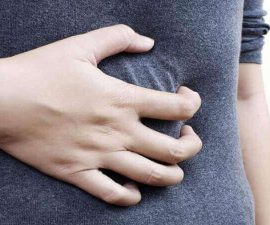… Continued …
Dairy products may provoke constipation after operation. They have a label of being ‘binding’, though not always since again the effect varies between individuals. Their reputation as ‘constipating food’ is due to their low-fiber and high-fat contents.
However dairy products are high in some essential nutrients, especially such as protein and calcium. If you don’t have any discomforts after eating dairy products, you can continue eat them in moderation. But to keep safe, focus on low-fat /low-sugar dairy products such as free-fat yogurt and skim milk.
Cheese
Cheese is high in fats, which are mostly of the saturated type. Also, it is loaded with sodium. The combination of excess saturated fats and sodium from your diet can effectively provoke abdominal bloating, gas, constipation, and other digestive problems.
And these could be much worse if you have lactose intolerance, because lactose in cheese is harder to digest by some lactose-intolerant people.
Other constipating foods
- Sugary foods such as cakes, candies, pastries, and sweet beverages.
- Alcohol, caffeine, soda cans, and soft-drinks (high in caffeine). They can provoke dehydration, making your constipation worse.
- Avoid also gluten-containing foods if you have allergic reaction to gluten (a protein found in certain foods such as barley, wheat, spelt, and rye).
- Fried, fast foods – including fast-foods snacks such as ice cream, milk chocolate, cookies, and chips.
- Unripe bananas.
- Persimmon, an Eastern Asian fruit that could be constipating for some individuals.
- Etc.
What else you can do?
While certain foods are bad when you’re recovering from inguinal hernia surgery, there are also many foods that may help provide quick healing. Eating the right foods does matter, especially in the weeks following surgery.
Here are a few examples of what you need to prioritize in your diet:
Plenty of dietary fiber is a must
Fiber may be one of the most important things you need as your body is healing itself and recovering from surgery.
It plays a key role to prevent and relieve constipation. But don’t rely on fiber supplements, unless your doctor prescribes them. Instead, go with a natural way by adding more high-fiber foods — such as fresh fruits, veggies, and whole grains — to your diet.
Get enough protein!
Your body needs protein for many body functions. Without plenty of protein, it’s more difficult for the body to heal tissues and skin injured by surgery. Because protein and other nutrients are vital to build necessary building blocks and healthy new tissues!
Protein can be found in many foods. But to keep safe, choose some that are also free /low of constipating properties such as saturated fat, sodium, and sugar. To improve your dietary protein status, focus on lean protein! Skinless chicken, turkey, and fish are good sources of lean protein. And if you’re a vegetarian, consider tofu (soy product), beans, nuts, or other plant-based protein foods.
Plenty of calories are necessary, too
It’s important to keep your weight healthy after operation. Overweight and obesity can drive more pressure in your abdomen, worsening your post-operative pain and may also increase the risk of recurrent hernia. But this doesn’t mean you have to significantly cut down on your dietary calories if you’re obese or overweight. Instead, it’s much better to lose your weight gradually.
Maintaining a healthy-body weight matters when you’re recovering from hernia-repair surgery, so does eating enough calories! Even though you’re obese, getting plenty of calories is necessary to support your body through the healing process. Include more foods you know to be nutritious and healthful in your diet, and also make sure all of them meet to your daily calorie requirements!
Keep hydrated
Being hydrated can also help reduce your risk of constipation and straining on the toilet. Drink plenty of fluids to avoid dehydration, unless your healthcare provider gives you specific instruction.
Also, drink slowly to avoid dumping syndrome, a condition when liquids go down through your digestive tract too fast and in large amounts. This dumping syndrome may cause dizziness — or worsen your nausea and vomiting.
You might also like to read:
What else?
Again, focus on unprocessed, whole foods to get the most benefits from your diet! For examples; choose onions instead of onion rings, baked potatoes are much better than French fries, and eating a whole apple is more nutritious than apple juice.
It may also be helpful to consider bland, low-fat foods if your stomach is upset. These include broiled chicken, plain rice, and toast. And chew your foods thoroughly. Larger pieces of food are more difficult to digest in the stomach, causing blockages that may trigger upset stomach. Also, get enough sleep – rest when your body feels tired. This is important because lack of sleep can inhibit your healing process, making you recover longer than should be.





Hernia Surgery diet
Actually there is no specific suggestion when it comes to diet after hernia surgery. But some people find that certain foods might help boost their recovery more quickly!
I AM ON A POOR BUDGET, I CAN’T AFFORD A 2000 CALORIE DIET A DAY. I TRY TO EAT SOME ORGANIC & NON-GMO FOOD. WHAT ARE MORE GOOD OPTIONS FOR ME? 68 YR.OLD. WT.140LBS.
Just focus on foods that help your digestive system work more easily, and avoid ones that provoke constipation (more straining during bowel movement is a bad way for your wall fascia, making another hernia more likely).
Vanakam,, mam I have done inguinal hernia surgery ,,may I eat Matten non veg,, now have 2weeks enough pls tel me food for cure